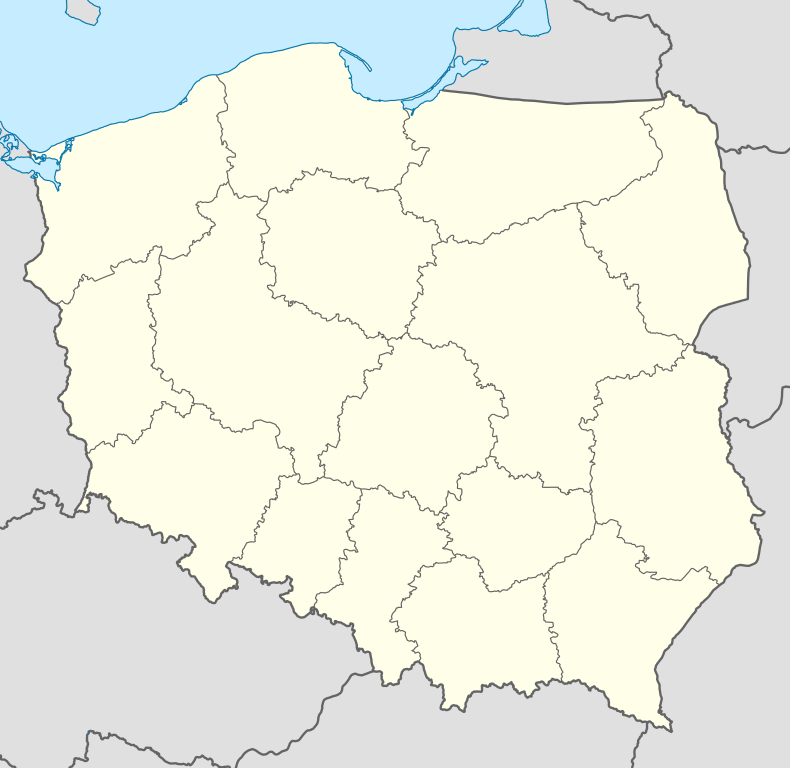Warcino
| Warcino | |
|---|---|
| Village | |
 Warcino | |
| Coordinates: 54°13′22″N 16°51′26″E / 54.22278°N 16.85722°E | |
| Country |
|
| Voivodeship | Pomeranian |
| County | Słupsk County |
| Gmina | Kępice |
| Population | 450 |
Warcino [varˈt͡ɕinɔ] (German: Varzin) is a village in the administrative district of Gmina Kępice, within Słupsk County, Pomeranian Voivodeship, in northern Poland.[1] It lies in the historic Pomerania region on the left banks of the Wieprza river, approximately 3 kilometres (2 mi) south-west of Kępice, 30 km (19 mi) south-west of Słupsk, and 117 km (73 mi) west of the regional capital Gdańsk. The village has a population of 450.

The settlement, then part of the Duchy of Pomerania under Duke Bogislaw X, was first mentioned in a 1485 deed. Held by the Lords of Zitzewitz, it was incorporated into the Pomerania province of Brandenburg-Prussia in 1653. On 7 June 1867 it was bought from the Blumenthal family for Otto von Bismarck by the grateful Prussian state for his services as Minister President in the Austro-Prussian War. Bismarck, born in the Altmark, had ties to Pomerania since he spent several years of his childhood at his family's estates in Kniephof near Naugard and had married Johanna von Puttkamer at nearby Kolziglow in 1847. Johanna died here in 1894. Varzin manor remained a possession of the Bismarcks until their expulsion in 1945. Now a forestry college, the manor house still has a huge sculpture of Bismarck's horse, Schmetterling, on its walls.
Notable people
- Walter Flex, author of the Wild Geese poem, stayed at Varzin as a coacher of the Bismarck family in 1910/11.
- Theodor Fontane visited here and Varzin is mentioned in his novel Effi Briest.
External links
| Wikimedia Commons has media related to Warcino. |
References
Coordinates: 54°13′22″N 16°51′26″E / 54.22278°N 16.85722°E